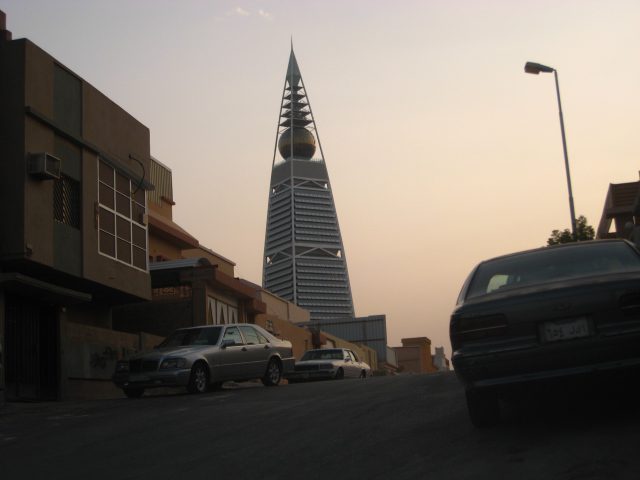
The Middle East is a difficult neighborhood. And, as any reader of the Bible should already know, it always has been.
It is also, to vary the metaphor, a minefield, an extraordinary difficult place to practice the art of international politics.
We’re seeing that now.
Just when some of us thought — hoped — that a realignment might be shaping up, with some of the Arab states recognizing that the perpetual Arab-Israeli standoff has been a loser for them, squandering their resources and costing them opportunities for tourism and economic development, and that it’s going absolutely nowhere, and with some of the Arab states recognizing that Israel might be a useful strategic and economic ally in the struggle to contain the seeming expansionism of the Iranian clerical regime, the young Saudi prince Mohammed bin Salman seems to have endangered if not scuttled that realignment.
Please remember that Iranians are not Arabs. Their language is Persian — sometimes, curiously, called Farsi by English speakers — which, unlike Arabic, a Semitic cousin of Hebrew, is an Indo-European language distantly but definitely related to English. And Iranians are, overwhelmingly, Shi‘ite Muslims, unlike a large majority of Arabs, who are Sunni Muslims. Historically, there has often been unease when not outright hostility between the Shi‘ite Persians and the Sunni Arabs.
And that unease remains today. Various Arab rulers have publicly worried about the creation of a “Shi‘ite crescent,” which is essentially equivalent to an arc of Iranian influence if not hegemony, extending from militantly and expressly Shi‘ite Iran through largely Shi‘ite Iraq (where Iran has been actively involved in Iraqi domestic politics) through Syria (which is led by the religious-minority and heterodox quasi-Shi‘ite regime of Bashar al-Assad, inherited from his father, Hafez al-Assad), to the Shi‘ite Hizbollah organization in the south of Lebanon, which sometimes functions as an Iranian proxy army, with Iranian advisors and support.
Anyway, some of us were (very) cautiously hopeful that the accession of Crown Prince Mohammed bin Salman to effective power — the King being elderly and, evidently, suffering a degree of dementia — might lead to some beneficial and forward-looking changes. He is, after all, of the younger generation, many of whom are plainly tired of such elements of Saudi life as the old and damaging restrictions on women and of the constant drain of the Arab-Israeli conflict, which distracts attention from other challenges, problems, and opportunities. And he has, indeed, made a few significant moves in that direction. Unfortunately, he has also been quite ham-handed — if I may use that imagery with regard to a Saudi Muslim royal — and, among other things, his war in Yemen, his disregard for the orderly rule of law in his shakedown of wealthy Saudis, his creation of a crisis with Qatar, and, now, the brutal murder of Jamal Khashoggi (which the CIA, at least, has concluded was carried out on his instructions), have made him toxic.
Too bad. What the late Israeli foreign minister Abba Eban — an Arabist by training, incidentally — once said of the Palestinians in particular is all too often true of Middle Eastern leaders as a whole: “They never miss an opportunity to miss an opportunity.”










